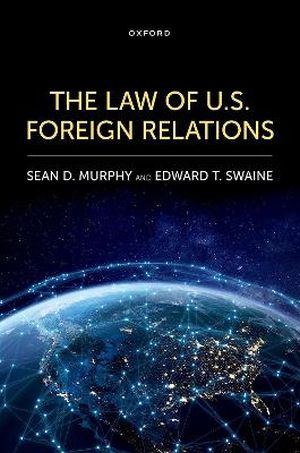
The Law of U.S. Foreign Relations is a comprehensive and incisive discussion of the rules that govern the conduct of U.S. relations with foreign countries and international organizations, and the rules governing how international law applies within the U.S. legal system. Among other topics, this volume examines the constitutional and historical foundations of congressional, executive, and judicial authority in foreign affairs. This includes the constitutional tensions prevalent in legislative efforts to control executive diplomacy, as well as the ebb and flow of judicial engagement in transnational disputes - with the judiciary often serving as umpire but at times invoking doctrines of abstention.
The process of U.S. adherence to treaties and other international agreements is closely scrutinized as the authors examine how such law, as well as customary international law and the law-making acts of international organizations, can become a source of U.S. law. Individual chapters focus on the special challenges posed by the exercise of war powers by the federal government (including during recent incidents of international armed conflict), the complex role of the several states in foreign affairs, and the imperative to protect individual rights in the transnational sphere.
Among the contemporary issues discussed are the immunity of foreign heads of State, treatment of detainees at Guantanamo, movement of the U.S. Embassy in Israel to Jerusalem, state-level foreign compacts to address climate change, bans affecting refugees and asylum-seekers, and recent interpretations of key statutes, such as the Alien Tort Statute, the Torture Victim Protection Act, and the Foreign Sovereign Immunities Act.